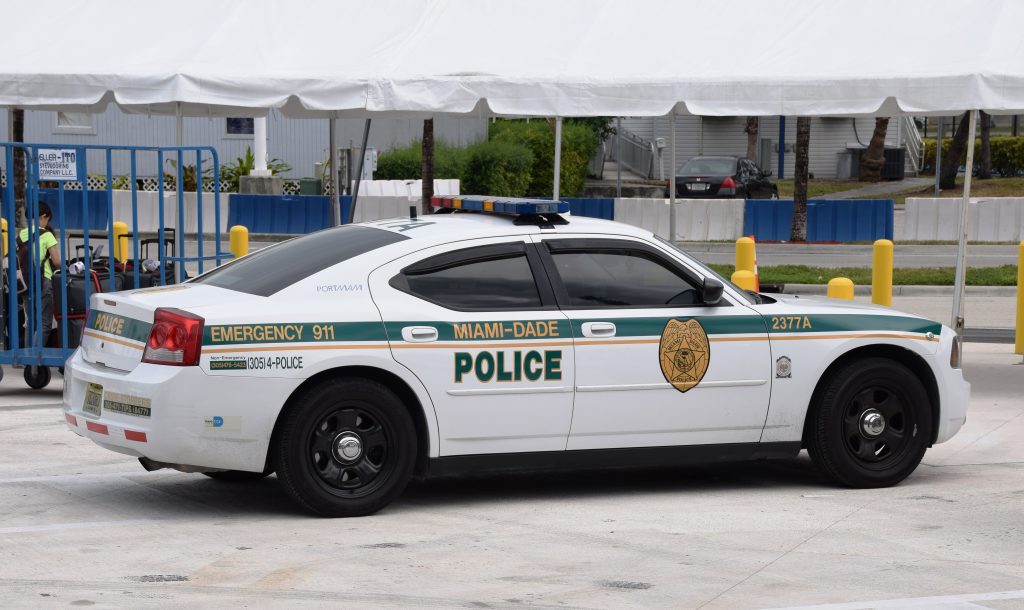
Image Credit: Dickelbers, CC BY-SA 4.0, via Wikimedia Commons
By Saul Roth
Administrative Stress
The term “rookie” is commonplace in police culture. It is always heard in police television shows and movies. Brooks and Piquero (1998) aptly explain how new officers try to fit in, while more experienced officers play a role as “older brother” to the new officers. The police chief as a father is a stretch, though. The officers on street patrol rarely see the police chief. Information filters through the ranks of supervision from the chief down through the sergeants and eventually to the officers on patrol. I concur that the larger police departments have a large bureaucracy that can cause much stress to its officers. Brooks and Piquero (1998) explain how officers advancing in rank experience even more stress. In many cases, this is true. The demands of politicians are brought forth on police chiefs. These demands filter through the departments down the ranks. Police commanders are under much stress to reduce crime and satisfy the public.
Larger police departments will usually have more sources of stress, though this does not exclude stress in the smaller police departments. However, large bureaucracy and the chances of being involved in violent incidents are more prevalent in the larger departments. Additionally Liberman et al. (2002) states that incidents handled less frequently will cause more stress. I believe this to be the case and to also be the cause of stress in smaller police departments. Police officers in smaller police departments also have to handle contentious situations with co-workers and supervisors. In fact, there will be a lesser chance of avoiding these situations, as there will be fewer alternatives for transfer according to Brooks and Piquero (1998). This study on larger departments compared to smaller departments showed more stress on the larger police departments. The larger departments are more paramilitary and impersonal. It is also noted in the study that small pockets of units in large police departments will sometimes take on the attitude of a smaller department (Brooks & Piquero, 1998).
The stress placed on the upper administrative staff of the police departments causes much of the stress in the lower ranks of the department. The mid-level supervisors are with the officers every day and must promote the department’s agenda. Many supervisors do not engage in participatory supervision. By not listening to the officers on the street, they cause more stress for the officers.
Liberman et al.’s (2002) study demonstrated that the work environment is one of the biggest stressors for the average police officer. Many time, poor supervision and excessive rules and regulations cause more stress to the police officer than the dangerous conditions they encounter on the street. Then, after their encounters on the street they are second-guessed by this same administration according to (Zhoe & Archbold, 2002). Between the poor non-participative supervision, paperwork, and internal investigations, the police officer is under a tremendous amount of stress.
During my interview, I discussed the suicide of Lt. Walsh. He committed suicide after attending a monthly department meeting in which the upper administration of the police department questioned commanders and other supervisors about their achievements and problems of their respective commands during the past month. The information I heard discussed through the department after the suicide was that he had attended his first such meeting as a lieutenant assigned to the commissioner’s office. He believed he had not performed satisfactorily and took his life later that day. The NYPD conducts similar meetings, and I have knowledge that these meetings are very stressful and that NYPD officials at these meetings question commanding officers without respect. These types of meetings clearly cause undue stress on commanding officers that filters down through the department. For instance, a commanding officer in the fifth precinct of Nassau County Police Department was demoted for having felony case reports reflected as misdemeanor reports to gain favor with the police administration and eventually obtain a promotion.
Moreover, Whetstone (2001) explains that many police officers do not want to be promoted to sergeant because of the stress. According to Kirkcaldy et al. (1998), sergeant is one of the more stressful ranks as this person acts as a line supervisor who is out on the street with the police officers enforcing the regulations of the department. The sergeant also responds to serious incidents and deals directly with the public. Much of the involvement with the public revolves around complaints concerning police officers. I have experienced what Whetstone (2001) discussed: As an NYPD officer, I was about to be promoted to sergeant in 1990. Instead, I took a police officer position with the Nassau County Police Department, as I would have the same or more income with less stress.

Recent Comments